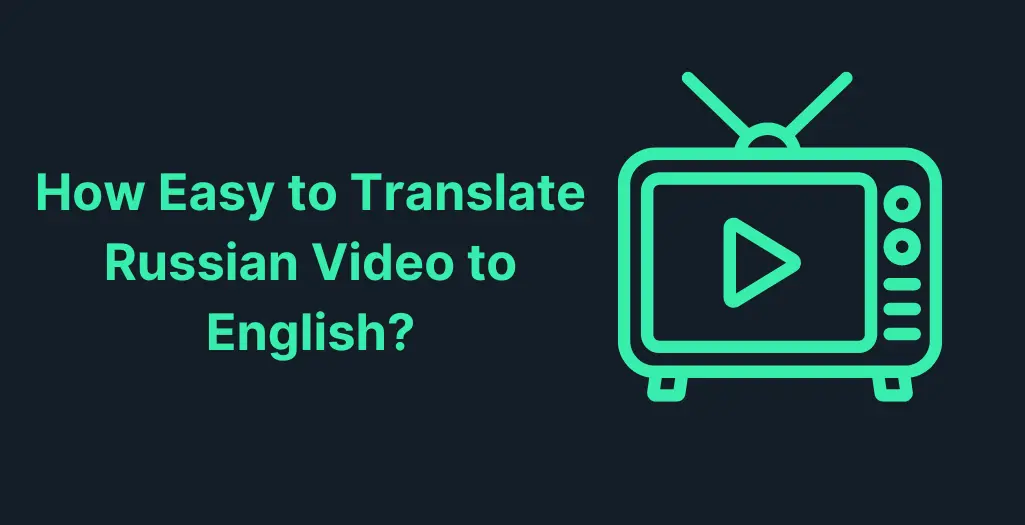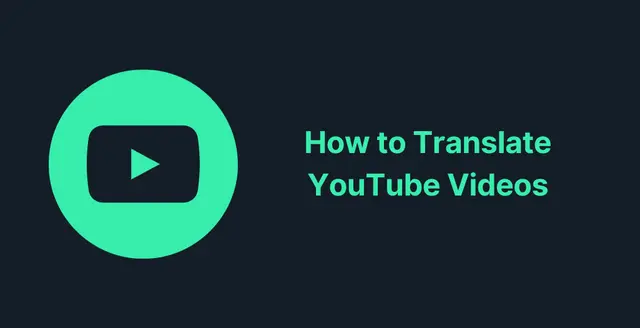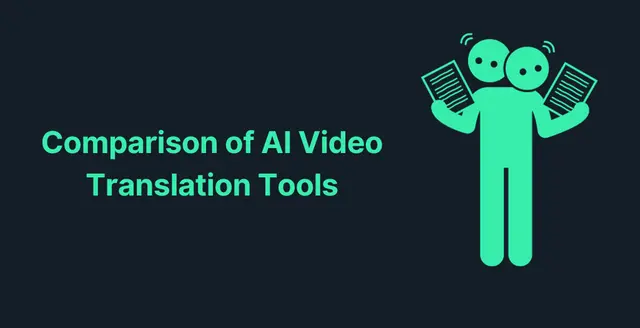Video has become a big deal in the online world. Think about it, how many times a day do you watch a video? Maybe it's a cute cat video, a cooking tutorial, or a news clip.
The point is, videos are everywhere! And the beauty of the internet is that these videos can come from anywhere in the world. But here's the problem: not all videos are in a language we understand. This is where video translation comes in, and it's especially important when we're dealing with videos from Russia. So, let's talk about translating Russian videos into English, and how it can make a world of difference.
Russian Digital Landscape
Let's take a moment to look at Russia's digital world. They're producing a lot of video content, and it's not just cat videos! They're making everything from educational videos, documentaries, to entertaining comedy sketches, and so much more. The range and depth of the video content coming out of Russia is impressive.
But here's the thing: a lot of this awesome content is in Russian. That means that many people around the world can't enjoy it because they don't understand the language. Imagine the number of fantastic videos that are locked away because of a language barrier.
That's why translating these Russian videos into English is so important. It's about unlocking these videos so more people around the world can watch, learn, and enjoy.
Challenges of Russian to English Video Translation
Now, let's talk about what happens when we try to translate Russian videos into English. It's not as easy as it sounds! Russian and English are very different languages.
They don't just use different words; they have different grammar rules, too. For example, the way sentences are built in Russian can seem backward to an English speaker. And vice versa. This can make translating a challenge.
Then there's the cultural differences. Jokes, phrases and references may not translate well into English if they are linked to Russian culture. This is because they are understood within the context of Russian culture.
This makes translating even trickier. It's not just about changing words from one language to another; it's about translating the meaning and feeling behind those words.
And let's not forget about time. Manual translation takes a lot of time! You have to listen to the video, write down what's being said, then translate it, and make sure it makes sense.
And if there's a lot of videos, that's a lot of time. So, while it's crucial to translate Russian videos into English, it's not always an easy task.
Role of AI in Overcoming Translation Challenges
So, we've talked about the problems with translating Russian videos into English. But what if I told you there's a way to make it easier? And that's where Artificial Intelligence, or AI for short, comes in.
You might have heard of AI. It's a type of computer technology that can learn and make decisions, almost like a human. And it can help a lot with translation.
For example, AI can listen to a video and write down what's being said. It can then translate that text into another language. All of this can be done very quickly, saving a lot of time.
And that's not all. AI is getting better and better at understanding the meaning behind words. So, it's not just translating words; it's translating the feeling behind those words.
But AI isn't perfect. Sometimes it can make mistakes or not understand something a human would. And while it's getting better at understanding the meaning behind words, it's not always perfect. So, while AI has made translating videos from Russian to English much easier, there's still a long way to go. But the future of AI in translation looks promising.
How to use VideoDub to translate a video?
Let's talk about a real-life solution to this problem - VideoDub.io. This is a website that uses AI to translate videos from one language to another, including from Russian to English. It makes the whole process much easier and faster. Here's how it works. You upload your video, and the AI listens to what's being said. It then writes it all down and translates it into the language you want.
It even adds voice-over in the new language. This is a huge time-saver, especially if you're dealing with long videos. But what makes VideoDub.io really stand out is its ease of use. You don't need any technical skills to use it. The website is simple and straightforward.
Of course, VideoDub.io isn't perfect. Right now, it can only translate one voice at a time. But we're working to add more features and make it even better.
Future of AI in Video Translation
AI is changing fast and we can look forward to even more helpful tools for video translation. Imagine being able to translate multiple voices at the same time, or having AI that can understand different accents better. These things could be possible in the future.
This is good news for people who make videos and people who watch them. Creators can reach more people around the world without doing a lot of extra work. And viewers can enjoy videos from other countries more easily. With AI improving, we can all understand each other a little better.
Final Thoughts
Translating Russian videos to English is important. It helps more people to enjoy and learn from these videos. AI is a big help in this. It's getting better and better at translating, which is good news for everyone. Let's watch as this exciting technology keeps improving.


